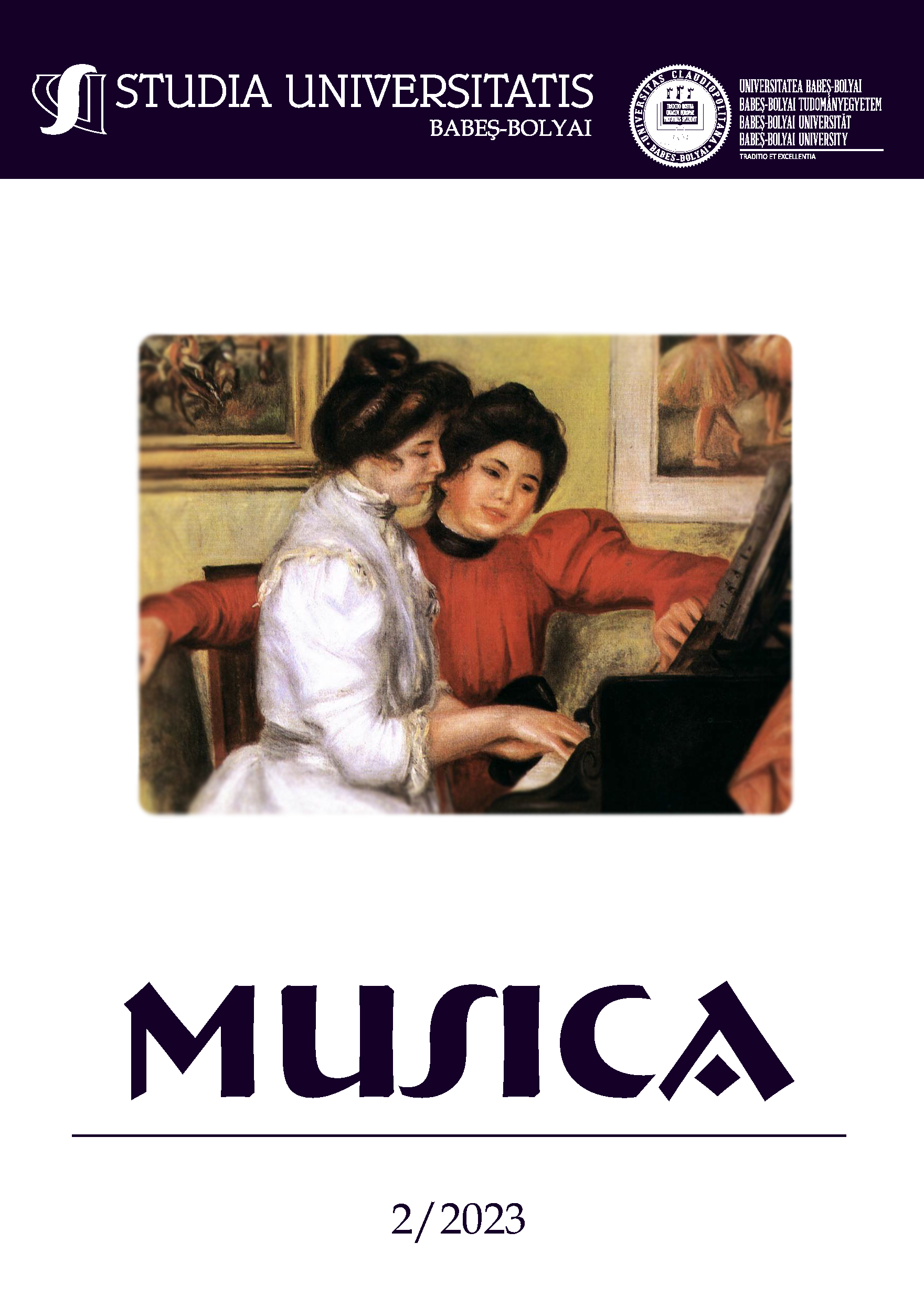The Arsenal of Means Used by a Conductor in Decoding an Opera Score
DOI:
https://doi.org/10.24193/subbmusica.2023.2.18Keywords:
opera performance, conductor, compositional techniques, analysis, Orpheus by Claudio Monteverdi.Abstract
For a conductor the text of the score is that building material used in the creation of “his own world”. This paper examines the system
of means used by a conductor in creating an opera performance. A transformation of the “mobile” and “fixed” elements of the score into a magnificent world of opera performance. The study is based on material from a production of the opera Orpheus by Claudio Monteverdi, directed by Jean-Pierre Ponnelle, conductor being Nikolaus Harnoncourt. This staging can certainly be considered one of the most striking examples of the remarkable interplay between conductor and director in an opera production. Each new revised edition of different opera titles, over the centuries, becomes the product of the personal vision of the creators, acting from the point of view of the aesthetics of its time.
References
Casals, Pablo - Corredor, José Maria. Conversations avec Pablo Casals (Conversations with Pablo Casals). Ed. Michel Albin, Paris, 1955.
Călin, Carleta-Steluța. Dicționar de termeni muzicali (Dictionary of musical terms), Editura Științifică și Enciclopedică, București, 1984.
Ichim, Traian. „Conceptul de stil în interpretarea scenică a unei partituri muzicale” (The concept of style in the stage interpretation of a musical score). In Bulletin of the Transilvania University of Braşov – Supplement Series VIII: Performing Arts, Vol. 13 (62) No. 2 special issue, 2021
Rothschild, Fritz. Musical Performance in the Time of Mozart and Beethoven (The Lost Tradition in Music). Part II, London, 1961.
Schonberg, Harold C. Viețile marilor compozitorilor (The Lives of the Great Composers), Editura Lider, București, 1997.
Voileanu-Nicoară, Ana. Contribuții la problematica interpretării muzicale (Contributions to the issue of musical interpretation), Editura MediaMusica, 2005.
von Pidoll, Karl. Elly Ney. Gedanken über eine Künstlertum (Thoughts about being an artist), Helling’sche Verlagsanstalt, Leipzig, 1942.
Downloads
Published
How to Cite
Issue
Section
License
Copyright (c) 2024 Studia Universitatis Babeș-Bolyai Musica

This work is licensed under a Creative Commons Attribution-NonCommercial-NoDerivatives 4.0 International License.



